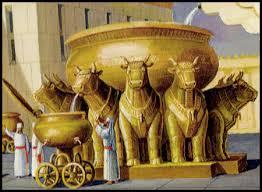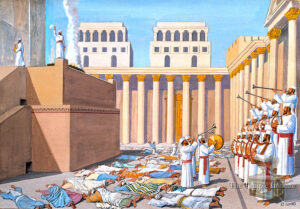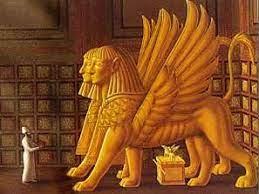Db – The Personal Implications of 1 Kings 12:1 to 16:34 and 2 Chron 10:1 to 17:1
The Personal Implications of
First Kings 12:1 to 16:34 and Second Chronicles 10:1 to 17:1
Today, believers must decide what ideas, practices, and attitudes erode, then obliterate, biblical faith. As Paul House relates in his commentary on First Kings, it should be obvious that certain worldviews, lifestyles, theologies, and organizations are hostile to a distinctive faith in Yeshua Messiah. Basically, such affections deny the uniqueness of God’s covenant with His people and the universal Church, encourage the worship of other things or gods, or destroy the authority of ADONAI in everyday life. Certainly, individuals must decide for themselves what constitutes essential faith, but some broad guidelines exist in First Kings Chapters 12 through 16. Whatever leads one away from clear biblical teaching about the Lord constitutes an opportunity for losing distinctive faith.
One way of not ending up in a theological ditch is to have gratitude for what God has already done. Jeroboam and Baasha illustrate this truth. Both men were elevated to the throne through YHVH’s direct intervention, yet neither man served Ha’Shem, who considered them both to be extremely ungrateful (First Kings 14:8-9 and 16:1-2). They failed to remember that responsibility and privilege go together, and the beginning of this “amnesia” began when they didn’t thank ADONAI for their position by serving Him exclusively.

People who disobey God, reject the covenant, adopt a syncretistic attitude toward their faith (see the commentary on Galatians, to see link click Aj – No Other Gospel) and are ungrateful, contribute to the long-term problems in their lives, the family’s lives, and their nation’s life. Each of the northern kings helped guarantee their country’s demise by what they did. Jeroboam and Baasha created an atmosphere of rebellion and violence that harmed their descendants. Omri’s plan for national expansion and security included an alliance with Tyre, which included the worship of Ba’al, which ultimately caused Isra’el more problems than it solved. Sin leads to short-term inconvenience and long-term tragedy. Asa’s life demonstrated, though, that the reverse is also true. Those who follow ADONAI, even stumbling now and then, dignifies Isra’el in the long run. They are not shielded from battles, fears, and hard decisions (First Kings 15:16-22), yet they do more good than harm.
Modern readers have a hard time accepting the notion that the real fabric of history is not the interplay of economics, or the march of national destiny, but the issue of faithfulness to ADONAI. Certainly, most rational people understand that actions have consequences. Still, many hope that somehow individual and national sin will not lead to tragedy. First Kings does not have an automatic theory of retribution. Rather, the author seeks to warn apostates and give hope to the faithful. The book’s original readers needed to know that they suffered for a reason, but that their situation was not permanent if they obeyed the LORD in their own era. Today’s reader needs to hear the same message.324























